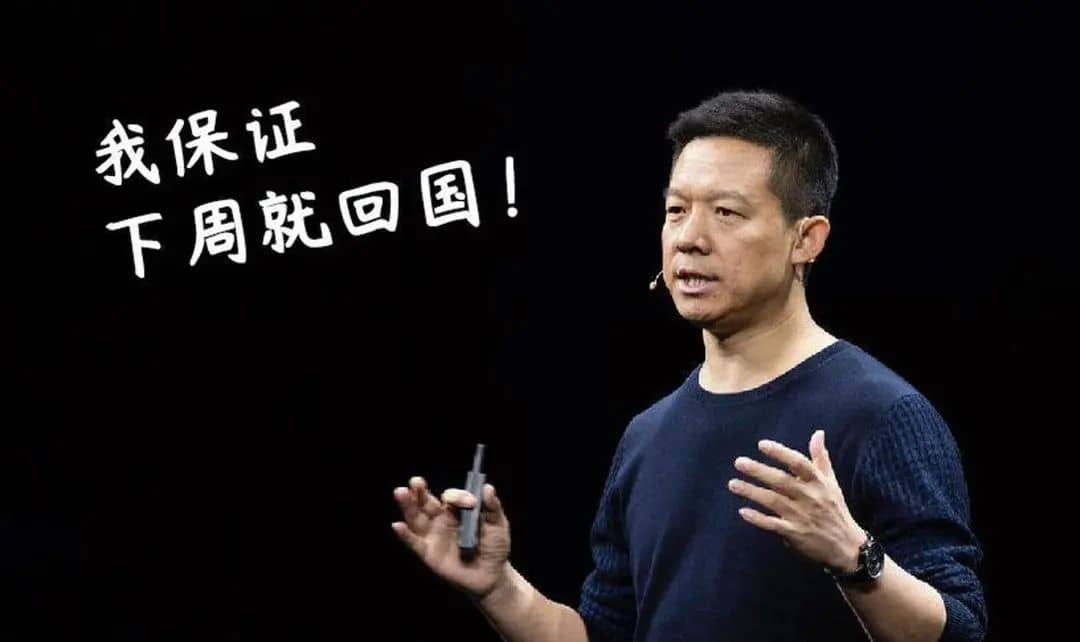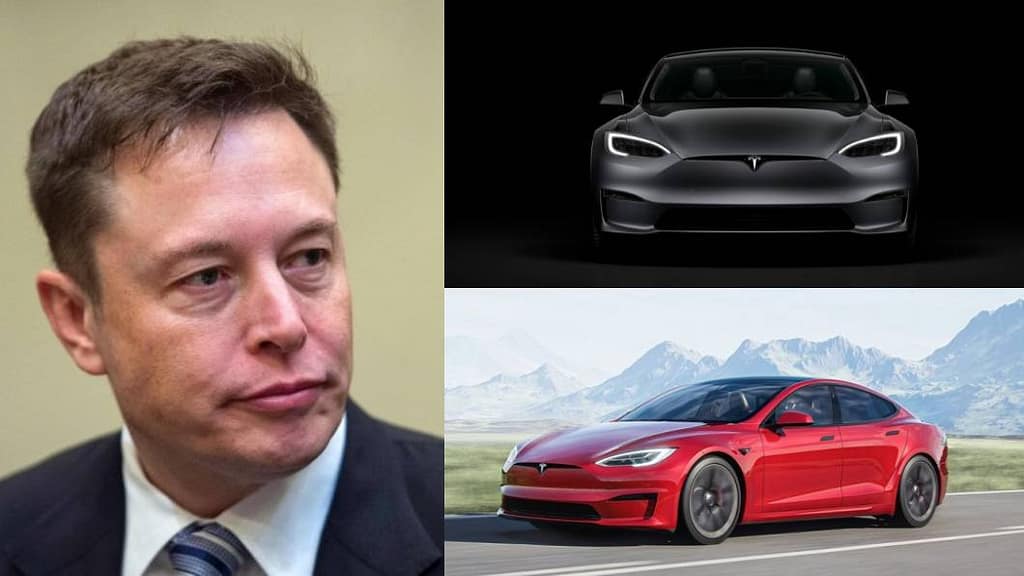In June 2014, Ling Zhengce, then Vice Chairman of the Shanxi Provincial Political Consultative Conference, was investigated for serious violations of discipline and law, shocking the political circles in Shanxi. His brother, Ling Wancheng, quickly fled abroad. Ling Wancheng, who had previously used the alias Wang Cheng, helped Jia Yueting rise rapidly. The Ling brothers are from Pinglu, Shanxi, and their father, Ling Huxie, was a veteran cadre from the Yan’an period. After graduation, Ling Wancheng became an editor at Xinhua News Agency and later the General Manager of China Advertising United. He resigned in 2003 to start his own business. Leveraging his family background, Ling Wancheng founded Hujin Lifang and invested in LeTV, successfully cashing out nearly 500 million yuan within five years.
After Ling Zhengce’s fall in June 2014, Ling Wancheng disappeared. Media reports indicated that he fled to the United States, and Jia Yueting also went abroad soon after. Jia first appeared at LeTV’s Hong Kong office and then went to Los Angeles, announcing LeTV’s entry into the North American market but did not return to China as scheduled. On July 15, the State Administration of Radio, Film, and Television began regulating LeTV, and its stock prices plummeted. In August, the Administration criticized LeTV again, and Jia Yueting still had not returned to China.

.
Jia Yueting denied that LeTV’s success was reliant on government connections, claiming that Hujin Lifang was a normal investment. However, Caijing believed that Jia was well-versed in capital operations and government-business relations. On November 24, Jia fell ill with a thymic tumor due to work-related stress, and after a successful surgery, LeTV safely navigated through this turmoil. On December 22, Ling Jihua was investigated, but this did not affect LeTV.
The downfall of the Ling brothers prompted Jia to accelerate market expansion and overseas capital operations. He and his sister, Jia Yuefang, began to significantly reduce their holdings in LeTV. Two years later, LeTV’s capital chain broke, leading to the collapse of its billion-yuan empire.
In 2014, besides the shake-up in Shanxi’s political scene, another significant event took place: On April 22, Tesla officially entered the Chinese market, with Elon Musk personally delivering the first Model S cars to Chinese owners. This event was met with great enthusiasm, and many internet tycoons became the first users.
Jia keenly recognized the importance of new energy vehicles. Despite 99% of LeTV’s senior management opposing it, he insisted on investing in this field, further deepening LeTV’s crisis. In August 2014, Jia personally invested in the electric vehicle company Faraday Future (FF) in the United States, recruiting executives from Tesla, BMW, and others, with the goal of surpassing Tesla.

.
After returning to China, Jia Yueting announced that LeTV would develop a super car and an automotive internet electric ecosystem. In January 2015, Jia stated in an internal letter that 2014 had been the most challenging year for LeTV, but he believed that the super car would redefine the automobile. Three months later, LeTV launched its super phone.
On April 14, 2015, Jia appeared at the super phone launch event, claiming that the iPhone 6 cost 1911 yuan to produce and sold for 5288 yuan, while the LeTV phone cost 1510 yuan to produce and sold for 1499 yuan. He adopted a strategy of selling hardware below cost and profiting from content.
From 2012 to 2015, Jia Yueting built seven ecosystems for LeTV, encompassing content, large screens, sports, cloud, mobile phones, finance, and automobiles. In 2015, LeTV entered a phase of cash-burning expansion, investing heavily to acquire rights to the Chinese Super League, take stakes in TCL, acquire Coolpad, and invest in Yidao Yongche, among other ventures, though few were truly profitable.
Jia Yueting sought financing everywhere while simultaneously cashing out his holdings, attracting investments from business magnates such as Jack Ma and Wang Jianlin. Jia’s wife, Gan Wei, also brought in numerous celebrity investors. However, as these prominent figures entered the scene, Jia Yueting and his sister, Jia Yuefang, began to significantly reduce their holdings and cash out. Starting in May 2015, Jia Yueting reduced his holdings three times, cashing out at least 11.7 billion yuan. Jia Yuefang cashed out a total of 13.984 billion yuan since 2014.

.
The Jia siblings claimed that their cash-out proceeds were lent to LeTV without interest, but by the end of 2015, Jia Yueting had only provided about 2 billion yuan, and LeTV’s 2016 financial report showed that all loans had been repaid. Without financial support, LeTV fell into trouble. In March 2016, Jia Yueting appeared on stage with business leaders at the Shenzhen IT Leaders Summit, released the LeTV car concept in April, secured $1.08 billion in funding for LeTV Auto in September, and in October, ranked 31st on the Hurun Rich List with a fortune of 42 billion yuan.
On November 3, LeTV’s financial crisis became apparent, with LeTV phones and cars experiencing payment delays, suppliers halting production, and employees protesting. Jia Yueting issued a company-wide letter reflecting on the overly rapid expansion and acknowledging the cash flow problems. Meanwhile, LeTV executives were buying luxury homes in North America, with Jia Yueting leading the way. Concurrently, LeTV was laying off employees, facing pressure from suppliers and banks, and experiencing a sharp decline in stock price, losing hundreds of billions in market value. On December 15, LeTV urgently suspended trading, and Jia Yueting held a press conference claiming he had invested all his personal wealth and even his life.
In January 2017, the FF91 made its debut at the CES show in North America, receiving 60,000 orders, but only about 300 had paid deposits. As the financial crisis deepened, Jia Yueting sought external rescue. Sun Hongbin invested 15 billion yuan in LeTV, LeTV Zhixin, and LeTV Pictures, becoming the second-largest shareholder of LeTV. In May 2017, Jia Yueting resigned as CEO of LeTV, and in June, he stepped down as chairman. In July, Jia Yueting announced he was going to Los Angeles for a meeting, promising to return the following week, but he never came back.

.
On January 24, 2018, after resuming trading, LeTV experienced 11 consecutive limit-downs. Sun Hongbin’s confidence turned into embarrassment, and he resigned as chairman of LeTV in March, asserting that LeTV only had three dead ends: bankruptcy reorganization, selling assets to repay debts, and delisting. Fifteen days later, Sunac confirmed a loss of 16.5 billion yuan invested in LeTV. Sun Hongbin admitted to the investment failure, stating that lending money to LeTV again would be “stupid.”
Buoyed by confidence, Xu Jiayin decided to try again. In 2018, Evergrande invested $800 million in LeTV Auto, and in June, Xu Jiayin personally went to the United States to meet with Jia Yueting. However, a month later, Jia Yueting claimed that the $800 million invested by Evergrande had been used up and requested an additional $700 million. Xu Jiayin refused, and FF and Evergrande ended up in court.
Xu Jiayin had been trying to gain control of FF Auto through a shell company, but Jia Yueting saw through it and was unwilling to give up controlling rights, despite receiving $800 million. Eventually, the two parties settled, with Evergrande no longer investing in FF, leaving their previous investment in tatters.
In addition to business tycoons and celebrities, LeTV also owed financial institutions 13.85 billion yuan, including 20 billion yuan to Ping An Bank, 17.5 billion yuan to CITIC Bank, and 12 billion yuan to China Merchants Bank. On May 14, 2020, the Shenzhen Stock Exchange decided to delist LeTV’s stock, and in July, LeTV was officially delisted. Before delisting, LeTV’s stock price was only 0.18 yuan, plummeting from a peak of 179 yuan to 0.18 yuan, with the market value dropping from 165 billion yuan to 7.18 billion yuan, shrinking by over 160 billion yuan. Over the course of ten years, tens of thousands of employees, stakeholders, investors, and hundreds of billions in capital all vanished into thin air.

.
Jia Yueting likes the San Antonio Spurs’ motto “relentless pursuit” and considers himself to embody this spirit. Since fleeing to the United States in 2017, he has faced a debt crisis and a collapse in credibility, resulting in a lifetime ban from the securities market by the China Securities Regulatory Commission, yet he has persisted in his car manufacturing endeavors. Despite the delayed delivery of the FF91, Faraday Future went public on Nasdaq through a SPAC in 2021, raising nearly $1 billion. In February 2022, the first pre-production FF91 rolled off the assembly line, with claims of delivery in the third quarter of 2022, which was eventually postponed to May 2023. The FF91 aims to disrupt ultra-luxury brands like Maybach, Ferrari, and Bentley, with an expected annual sales target of 55,000 units, but to date, only 11 units have been sold, including one for Jia Yueting’s personal use.
The high-end version of the FF91 is priced at $300,000, approximately 2.1 million yuan, making it twice as expensive as the Tesla Model X. Besides slightly better range, acceleration, and horsepower, the FF91 lacks distinctive selling points. Its appearance is similar to the HiPhi Z from Human Horizons and the Dongfeng Citroën Picasso, with car doors styled after Rolls-Royce’s coach doors, but the automatic doors fail to detect obstacles, posing safety risks.
Faraday Future’s performance has been poor, with its stock price plummeting since its listing. On April 22, 2024, Zhou Hongyi, founder of 360, commented at a Nezha Auto launch event that China’s new energy vehicle supply chain is comprehensive, noting that Xiaomi produced the Xiaomi SU7 in just three years. In contrast, Jia Yueting has been manufacturing cars in the U.S. for years without success. Zhou pointed out that even Tesla’s Elon Musk manufactures cars in China, suggesting that Jia Yueting missed out on leveraging China’s advantages by moving his operations to the U.S.

.
In response, Jia Yueting stated that although only 11 units of the FF91 were delivered after mass production, these cars endured many hardships and are original, top-tier products with disruptive significance. He mentioned that choosing to manufacture cars in the U.S. ten years ago was intended to make FF a bridge for Chinese cars to enter the U.S. market, and he plans to bring FF91 production back to China. Zhou Hongyi then jokingly asked Jia when he would return to China. Jia replied that he had repaid over $10 billion and had no debt under U.S. law. Many people questioned this, as he had acknowledged about $3 billion in debt and had no income in recent years, leaving them unsure how he repaid the debt.
It turns out that after fleeing to the U.S., Jia filed for bankruptcy and underwent debt restructuring. Creditors found that his only valuable asset was his shares in FF, so they agreed to convert $3 billion in debt into a 17.2% stake in FF, hoping he would succeed in car manufacturing. After FF went public, Jia repaid his debts, and the creditors cashed out. On April 30, 2024, FF was delisted from Nasdaq for having a stock price below $0.10 for ten consecutive trading days.
This drama has come to an end. Whether Jia Yueting can make a comeback is no longer important. People like him and stories like his are neither the first nor the last. As one Jia Yueting falls, countless others will rise. Ordinary people must guard their wallets and keep their eyes open, avoiding being misled by financial rogues.



0 Comments